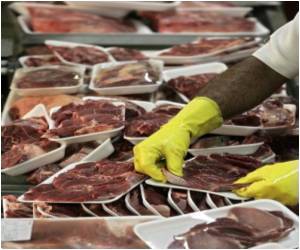A former champion of vegetarian diets who was also a complete vegetarian for six years has now written a book which presuades Britons to eat meat.

Fairlie, a smallholder and a former co-editor of The Ecologist magazine, believes vegetarianism is not the answer to the problem of livestock emissions and that Britons should continue to eat meat.
His views contradict the received wisdom of experts who said: "Meat is a wasteful use of water and creates a lot of greenhouse gases. It puts enormous pressure on the world's resources. A vegetarian diet is better".
It also deals a blow to the philosophy of celebrity vegetarians including Sir Paul McCartney and actress Natalie Portman.
In his new book, Meat: a Benign Extravagance, Fairlie argues there is some surplus and waste in every agricultural system and that animals which eat this surplus have little additional environmental impact.
Although he supports a drastic reduction in meat consumption, he questions the validity of some of the most commonly-repeated environmental claims, such as the notion that producing a kilogram of beef requires 100,000 litres of water - a figure he dismisses because it implies a daily water intake of about 25,000 litres per cow.
He said the figure attributes all deforestation in the Amazon region to cattle, rather than logging or development, and confused the gross and net production of nitrous oxide and methane.
He said many of he key ingredients in their diet, including olive oil, soya milk, chickpeas, lentils and rice, had to be imported, often from developing countries, at huge cost despite the existence of grass-eating dairy livestock on the site.
Source-ANI
 MEDINDIA
MEDINDIA




 Email
Email






